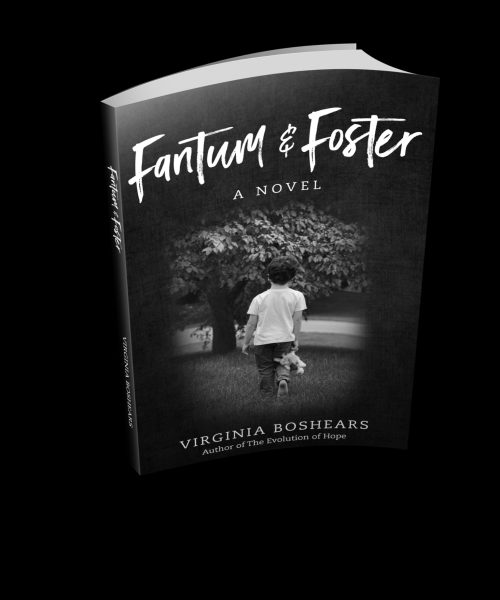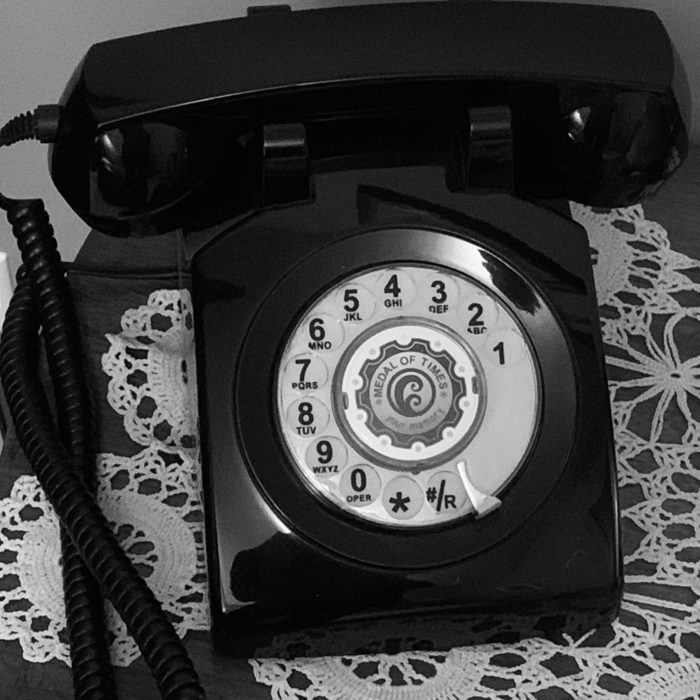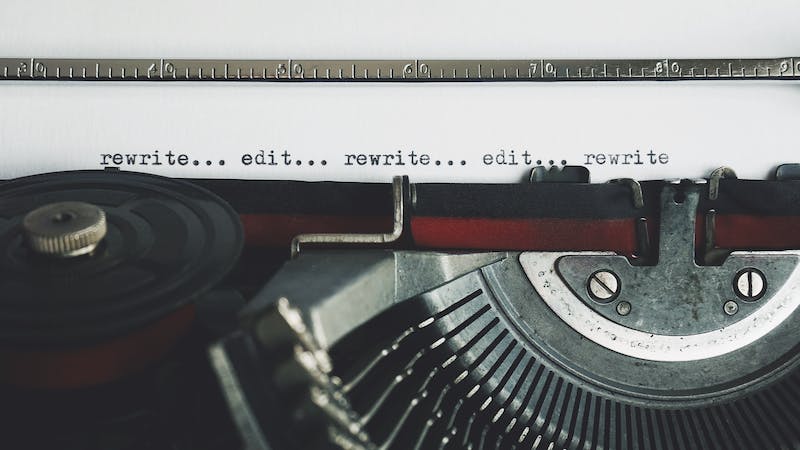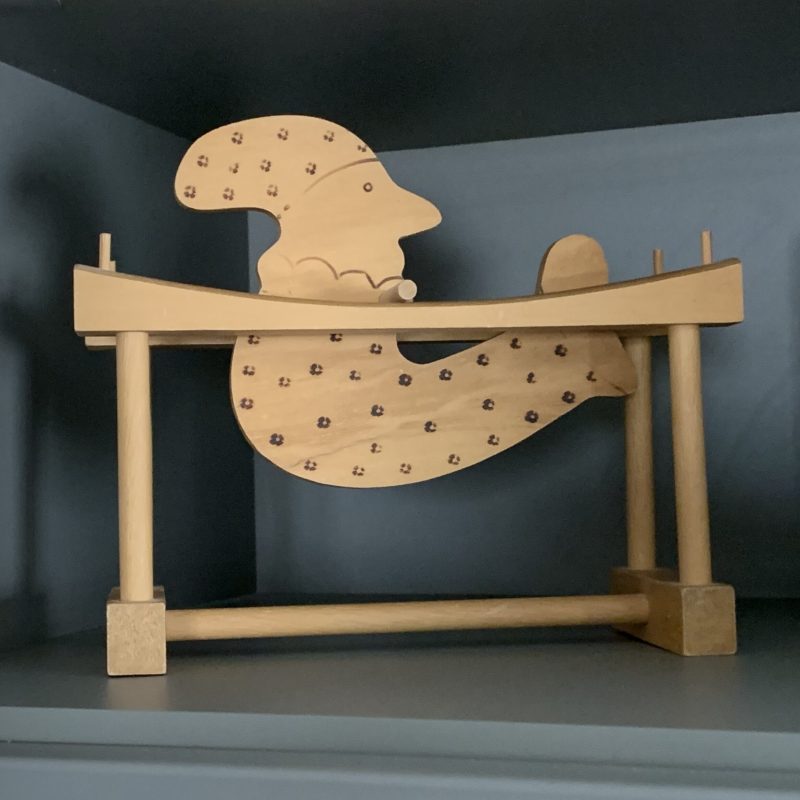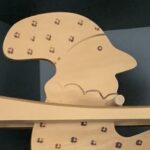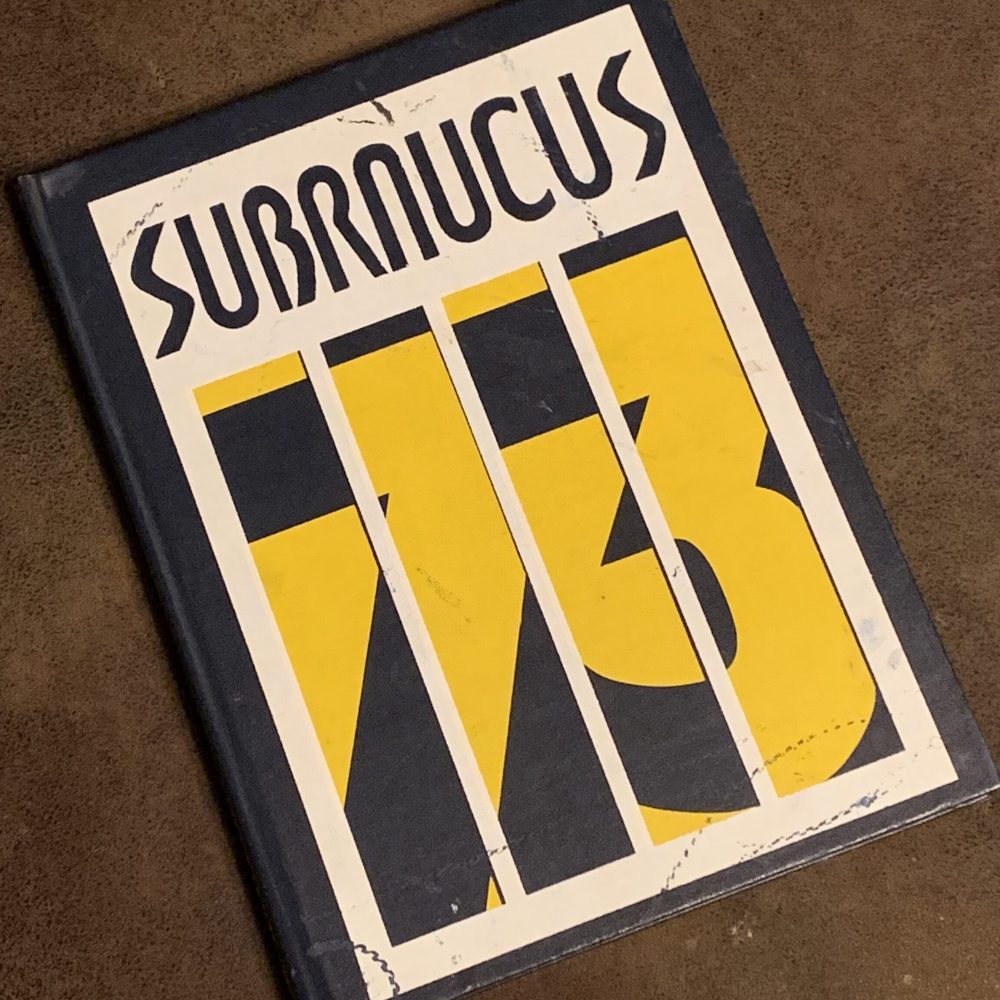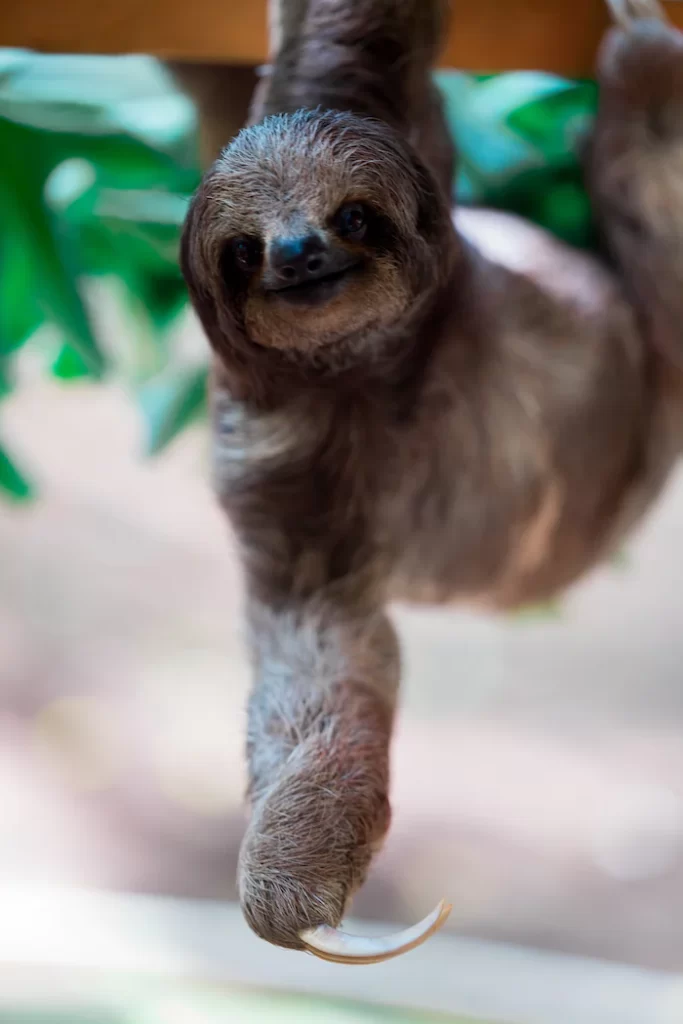PROLOGUE
2004
Foster prayed the baby wouldn’t wake up as he grabbed the phone on its second ring. Shooting a glance at his gently snoring wife, he whispered, “Hello?”
A cough on the other end of the line was followed by the voice of a seasoned chain smoker. “I’m calling for Foster Monroe.”
“Speaking,” Foster said, still whispering as he slipped out of bed. He padded into the master bathroom and eased the door shut behind him.
“Mr. Monroe, this is Detective Chuck Tennon from the 3rd Precinct. I’m calling about a Dahlia Waters.”
Foster plopped down on the edge of the tub, unconsciously rubbing the back of his neck to assuage a not-yet-there migraine. His fingers tightened around the receiver, and he asked, “What about her? What’s happened?”
Another cough into the phone, and then there was that gravelly voice again. “Mr. Monroe, are you any relation to Dahlia Waters?”
Foster sighed and said, “Yes, Detective, we’re related. She’s my mother.” He leaned his head against the cool tile and asked, “What’s she done this time?”
“I’d rather not go into this over the phone. I know it’s a god-awful hour, but can you meet me at St. Pete’s?”
“The hospital?” Foster’s knuckles grew white as he squeezed the phone tighter. “Has my mother been in an accident? Is she all right?”
“Mr. Foster, if you’d just be kind enough to come on over to the hospital, I’ll meet you in the emergency room and answer all your questions.”
“I’m on my way,” Foster said as he disconnected the call and started back into the bedroom. He softly slipped the phone back on its charger, but not softly enough. He sensed Emily shift in the bed, and when he looked up, she was lying there staring at him, her brow a triple row of faint but uneasy lines.
“What is it, hon? Who was that on the phone?” She sat up and pulled her knees to her chest. “No good ever comes from a call in the wee hours like this.” Emily looked more closely at Foster. “It’s your mom, isn’t it?”
He sat on the edge of the bed and began stroking the back of his wife’s hand. He was vaguely aware of how velvety her skin felt. It always did, and it always gave him a sense of calm. “Yeah, it’s Mom. Again. That was a police detective, but this time she’s in the hospital instead of jail. I’ve got to get over there.”
“Well, what happened?” Emily asked as she got up and reached for the clothes she’d draped over the chair the night before. “Was she in an accident?”
Foster shook his head and said, “He wouldn’t tell me anything over the phone. Just said he wanted me to meet him at St. Pete’s…in the emergency room. That can’t be good.”
“I’ll call Inez to come over and stay with the kids.” Emily was already pulling her jeans on under her night clothes.
“No, no, you need to stay here. Jacob has swim class in the morning, and there’s no reason for him to miss out just because his grandmother has managed to get herself into yet another bind.” He fastened his pants and kissed his wife, pulling his sweater over his head as he walked out into the hall. “I’ll call you as soon as I know something.”
_____
Foster carefully maneuvered his car through what felt like endless darkness. It was one of those pitch-black affairs that challenged your headlights and made you question whether the sky ever truly hosted a moon and stars. To make things more interesting, it was raining, so the lights from the oncoming cars were more blinding than usual. Foster pulled into the hospital parking lot and found a space close to the emergency room entrance. He locked the car, dashed through what was quickly turning to sleet, and then all but skidded through the automatic doors. There was an empty waiting area to his right, restrooms to his left, and an admittance desk directly in front of him. A short, chubby nurse was standing with her back to him.
“Excuse me,” Foster said as he leaned on the edge of the desk. “Can you help me?”
The nurse slowly turned around and eyed him with the weary interest of someone who’d spent about four hours too long on their feet. “What is it you need, son?”
“My name is Foster Monroe. I’m supposed to meet a Detective Tennon here. It’s about a patient who was brought in tonight. Dahlia Waters?”
The nurse’s bored expression was replaced with one of grave concern, and she said, “Oh, of course, of course, Mr. Monroe. Yes, that policeman has been expecting you. He’s waiting right down this corridor.” She shimmied out from behind the desk and started down the hall, motioning for Foster to follow.
“What can you tell me about my mother? Was she in an accident or is she ill?”
Avoiding eye contact, the nurse shook her head and said, “Right now, you just need to talk to the detective. Here we are.” She stopped in front of a room that looked like a small private waiting area, and the sign above the door read Consult Room #2. Foster vaguely recalled hearing someone say it was never a good sign when a doctor asked the family to gather in a consulting room. He wondered if the same held true when the summoner was a cop.
The nurse, Adina Oakes according to her name badge, cleared her throat and said, “Detective Tennon? Mr. Monroe is here.”
Nurse Oakes patted Foster’s arm and then shuffled back up the hallway. A tall white-haired man, drowning in a faded overcoat, stood up and approached Foster, right hand extended.
“Mr. Monroe, I’m Detective Tennon. Why don’t you have a seat?”
Foster shook the man’s hand and noticed how cold it was, as though blood circulation and his body had yet to make their acquaintance. “Detective, what’s this all about? The nurse couldn’t seem to give me any information.”
Tennon gestured toward the chairs, and as both men sat down, he said, “Before you can see her, I need to ask you a few questions.”
Foster didn’t like the fact that he still had no answers about his mother’s condition – or why she’d even wound up in the hospital in the first place – but he’d long held a deep respect for authority, so he simply nodded as an indication for the officer to continue.
Tennon leaned forward resting his forearms on his knees, and he looked directly into Foster’s eyes. “Mr. Monroe, your mother was found in an alley over on West Baker Street, back behind the Frisky Inn. A customer had gone out to the alley to take a…,” Tennon dipped his head toward Foster and smiled slightly. “Let’s just say, the bathroom was occupied. Anyway, he found your mother lying behind the dumpster. She’d been severely beaten.”
“Oh, my god,” Foster swiped his hands over his face and peered at Tennon. “How badly is she hurt?”
“We’ll get to that, son. I just need to make some sense out of a few things first.”
“What kinds of things? What are you talking about?” Respect for authority aside, Foster was beginning to lose patience.
The detective reached into one of his jacket pockets and pulled out a plastic bag. Inside was a filthy billfold that looked as though, decades earlier, it might have been made from some type of floral quilt. “Does this look familiar to you?”
Foster took the bag from the officer. He held it up to the light, turned it over a couple of times, and then said, “Yes, it’s my mother’s. She made it when I was little. She used to make a lot of things like this. Sold them at flea markets to make extra money.” Foster handed the bag back to the detective but hesitated a moment before releasing it.
“Okay, we thought this was probably hers, but the picture on her driver’s license is so old…expired, you know…it was hard to be sure she was the same woman in the photo.”
Foster nodded his head. He often found it hard to believe the woman his mother had become was the same one who worked well into the night creating purses and wallets out of recycled clothing and bedspreads just so she could put food on the table when he was a kid. He looked at Tennon and said, “You mentioned some other things you needed to ask me about. What else?”
The detective nodded his head and pulled another plastic bag from his jacket. This held a small glass vial with a white powdery substance inside. “Have you seen this before?”
This time, Foster did not reach out for the bag. He had no intention of touching it. He didn’t know if he’d ever seen that particular vial before, but he’d seen plenty like it in his mother’s possession over the years. “I can’t say for certain, but my guess is it belonged to her. My mother’s been an addict for about as long as I can remember.” That old familiar knot began to tighten in the pit of his stomach, and he couldn’t help but wonder how many more times he’d have to come face to face with his mother’s ruination.
Tennen offered an understanding nod and said, “Well, the only other thing she had on her when she was found was this.” He held up a larger plastic bag that was filled with something gray and matted. This time, Foster didn’t hesitate when he reached for it.
“Oh, my god. I can’t believe she still has him.” He felt tears burning the corners of his eyes.
“Him?” The detective asked, confused.
“Yeah. Fantum. My dog.”
Chapter 1
1976
“Kid.”
Foster’s fingers froze mid-tie over his right sneaker as he slowly turned his head to look over his shoulder.
“This yours, kid?” A dirty, overweight man with a gin-blossom nose held a gray ball of fur up over his shoulder.
“Give me my dog, mister.” Foster stood up, stretched to his full five feet, and stared directly into the man’s eyes. “He’s mine. Give him.”
“How’s that, now? This nappy little piece of turd is your little doggy, is it? Well, now, let’s just see if he’ll come when you call him.” The man hefted the little terrier up over his head and lobbed it into a nearby dumpster.
“HEY!” Foster spared just enough time to kick the man in the groin before running to the dumpster and scaling over the side. He was barely aware of the string of profanities and groans coming from the man he’d just ball-busted. His fingers scrambled through takeout containers and wadded newspapers until he caught hold of something furry and pulled it up out of the trash. “Fantum, it’s okay. You’re not hurt. I won’t let him get you again.”
Foster hugged the dog to his chest and stood up, peering over the side of the dumpster to see if the man was still there. All he saw was the backside of the creep as he limped across the street and disappeared inside Bailey’s Tavern. “Come on, fella,” Foster said. “Let’s get outta here.”
After running three or four blocks, Foster finally slowed to a walk until he came to the city park. Spying an empty bench under a huge sycamore, he sauntered over and sat down, carefully placing the dog on the bench beside him.
“Seems like some folks just don’t know what’s good for them, huh, Fantum?” He rubbed the little pooch behind the ears and smiled as he snuggled him against his leg. The dog hadn’t uttered a sound. Not when the man tossed him into the trash and not when they were running down the sidewalk. Fantum was probably the quietest dog anybody would ever come across. Except when he and Foster were alone. Then he’d speak his mind. Now, though, in the public view of anyone who chose to walk through the park, he silently lay there…seemingly happy and secure just to be close to his master.
Foster let his gaze drift over to the playground area and noticed a couple of classmates on the monkey bars. School had been out a little over a week, and he hadn’t run into many of his friends lately. Funny how he had plenty of people to do stuff with when school was in session, but it was hard to find anyone to hang out with during the summer. Hard for him, anyway. Foster wasn’t the type of kid to just pop over to somebody’s house and ask them to go for a bike ride or shoot some hoops. Whenever he did that, it felt weird…sort of like begging someone to spend time with him. At school, kids had to see each other anyway, so joining a kickball game at recess or right after school didn’t seem to be asking all that much.
Now he was met with that familiar dilemma of whether to stay where he was or go over to where the other kids were playing to see if he could join in. He couldn’t just leave Fantum here on the bench, but he also couldn’t risk the guys making fun of him. No one understood Foster’s connection with his little dog, so for now Foster decided they would just head home. Maybe he’d come back by himself later and see if his friends were still there. They wouldn’t bust his chops over Fantum if the dog wasn’t with him.
_____
“Foster, honey, izzat you?”
Foster blanched at the thick slur drifting out of his mother’s bedroom. Dahlia Waters had been living more in the bottle than out lately. “Yeah, Mom. I’m just going to get something to eat and then go back outside.” He hoped for no response, but instead, he heard her slippers shuffling down the hallway toward the front room.
“Let Mama fix you sumpin,” Dahlia mumbled as she reached out and pulled him into a stinky embrace of Heaven Scent and Jim Beam. She didn’t seem to notice him tense up as she held on. “You need to eat more, baby. You’re all skinny bones.”
“I’m fine, Mom. Look, why don’t you sit down, and I’ll make us both some sandwiches?” Foster guided her to the ratty sofa and held her arm as she plopped down onto a stained cushion. He grabbed a little book up off the floor and put it on her lap. “Here’s the TV Guide. Pick something out and I’ll turn on the TV for you when I get back.” As he turned to go into the kitchen, he heard a sad little laugh.
“Wonder who’s the parent here…” she said as she let her head fall back against the sofa.
By the time Foster had the bread and peanut butter out on the kitchen table, he could hear Dahlia’s soft snores. He tiptoed to the doorway – although stomping his feet wouldn’t have roused her – and looked in at the specter of the mother he loved so deeply. Her hands lay limp at her sides, the TV Guide was on the floor again, and her legs were stretched out in front of her. The dark circles under her eyes had become a permanent reminder of how wrecked she was. He may have been just a kid, but he feared if his mother didn’t change soon, she’d be dead before he finished high school. That was a thought too hurtful to linger over, so he went back to the table and got to the business of making their dinner.
_____
Foster ate his sandwich and walked down the hall to his bedroom. He tucked Fantum away in his own little bed by the chest of drawers, and then he went back to the front room and slipped outside. When he got to the park and saw that his friends were no longer there, he sat on one of the swings and pumped back and forth, getting as high as he could. He quickly got bored with the swings and started searching for bugs or unusual rocks under the hedges along the perimeter of the park. The most interesting thing he found was an empty Trojan package. He had no personal experience with those, but he knew some of the older boys kept them in their wallets. The only reason he even knew that was because, when he was little, he’d asked Billy Abbott what the round lump was in his billfold, and Billy took the package out to show him. He didn’t explain much about it, other than to say he really hoped he’d find a girl pretty soon who would let him try it out on her. Then he winked at Foster and told him that was just their little secret. He said if his mom ever found out he was carrying that around, she’d kick him three weeks from Sunday.
After spending a few more minutes looking under the bushes, Foster walked back home and found his mother splayed on the sofa pretty much as she’d been when he left. He went into his room and picked Fantum up, then climbed onto his bed and laid down with the little dog on his chest. Stroking his fur, Foster looked into Fantum’s eyes and said, “Feels like it’s just you and me tonight. Just like most nights, huh?” Fantum merely stared back.
Eventually, Foster decided it was probably time to rouse his mother, although he wasn’t sure why. It just seemed like the right thing to do. Maybe she’d be feeling better and would want to do something with him. They could play a board game or maybe make some Jiffy Pop and watch TV together. They used to do that a lot before whatever was wrong hit the fan.
Foster wandered back to the front room and saw that Dahlia had shifted to where she was half-sitting, half-lying on the sofa. She let out a soft groan as he lifted her legs onto the seat cushions so she’d be in a more comfortable position. Opening one eye, she gave him a crooked smile and then was out like a light again. Foster took the old torn quilt from the back of the rocker and spread it out over his mother, pulling it up just under her chin. It wasn’t the least bit chilly, but doing that made him feel better.
He didn’t need to check the clock to know Dahlia had been out for a good four hours. Light from the streetlamps filtered in through the living room window and cast a soft glow over her hardened sandwich. Foster started to reach for the plate so he could take it into the kitchen, but reconsidering, he simply sat Indian-style on the floor by his mother and waited for nothing in particular.

